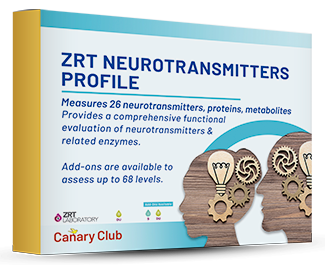
PTSD’s symptoms are broken into three categories: reliving the event, avoidance and arousal.
Post-traumatic stress disorder (PTSD) is a potentially debilitating anxiety disorder triggered by exposure to a traumatic experience.
Some events that may cause PTSD include combat, natural disasters, accidents, and sexual assault. Information about PTSD is timely, as even today, young men and women soldiers are returning home from active duty – some bearing unseen wounds from war.
1. Reliving the Event
If someone relives a traumatic event in a way that disrupts daily activity, they may be suffering from PTSD. Examples include recurring nightmares, flashback episodes, repeated upsetting memories, and strong reactions to situations that trigger memories of the event.
2. Avoidance
The symptoms related to avoidance include emotional numbing and purposeful detachment. This can cause someone suffering from PTSD to avoid people, places, or thoughts that remind him or her of the event. It is common to lose interest in normal activities, be unable to recall important parts of the traumatic event and feel like the future is hopeless.
3. Arousal
Examples of PTSD symptoms related to this category include having outbursts of anger, startling easily, experiencing hyper-vigilance, feeling irritable, having difficulty concentrating, and having trouble falling and/or staying asleep.
Other symptoms of PTSD – like dizziness, fainting, headache, agitation, and excitability – are typical of stress, anxiety, and tension. Studies indicate that those with PTSD have decreased levels of cortisol and increased levels of epinephrine and norepinephrine. Those three hormones create the “fight-or-flight” response to stress, which some people with PTSD experience frequently. Home testing kits can measure neurotransmitter, hormone and thyroid levels to assess an imbalance.
About 3.6% of adult Americans (5.2 million people) suffer from PTSD during the course of a year, and an estimated 7.8 million Americans will experience PTSD at some point in their lives. PTSD can develop at any age, including childhood. Women are more likely to develop PTSD than men, probably due to the fact that women are more likely to be victims of domestic violence, abuse, and rape.
Diagnosing PTSD
Mental health professionals look for several things when diagnosing PTSD. The requirements for arriving at the diagnosis are called “Criteria A – F” and are as follows:
Criterion A: Experiencing or witnessing a traumatic event where there was the threat of death or serious injury, and responding to the event with strong feelings of helplessness, fear, or horror.
Criterion B: Experiencing at least one of the following: recurrent nightmares, recurrent upsetting thoughts or memories; flashbacks, or physically responding (such as with an increased heart rate) to reminders of the event.
Criterion C: Experiencing at least three of the following: feeling distant from others, feeling as though life may be cut short, a loss of interest in activities, difficulty experiencing positive feelings, like love and happiness; difficulty remembering parts of the event, making an effort to avoid feelings, thoughts, or conversations about the event; and making an effort to avoid people and places that remind you of the event.
Criterion D: Experiencing at least two of the following: difficulty concentrating, difficulty falling or staying asleep, feelings of irritability or outbursts of anger, feeling like danger is around every corner, being easily startled or “jumpy.”
Criterion E: The symptoms described in the first four criteria must have lasted for more than a month. Symptoms that have lasted less than a month may be related to Acute Stress Disorder.
Criterion F: The symptoms described in the first four criteria must have a great negative impact on the quality of life, interfering with relationships or work.
Once identified, PTSD treatment often includes medication, psychotherapy and alternative therapies.
ZRT Neurotransmitters Profile
 See our ZRT Neurotransmitters Profile to check your neurotransmitter levels. Samples are taken from dried urine, with the exception of the saliva steroids add-on option.
See our ZRT Neurotransmitters Profile to check your neurotransmitter levels. Samples are taken from dried urine, with the exception of the saliva steroids add-on option.
Neurotransmitters Test Kit Includes:
Neurotransmitters Dried Urine: GABA, Glu, Gly, DA, Epi, NE, HIST, 5-HT, PEA, DOPAC, HVA, 5-HIAA, NMN, VMA, Trp, Kyn, 3-OHKyn, Tau, Gln, His, N-MeHist, Tyra, KynAc, Xanth, Tyr, Crtn
Available Neurotransmitter Add-ons:
You will be able to include these add-ons during the ordering process for the Neurotransmitters Panel.
Neurotransmitters + Saliva Steroids Concerned about hormone imbalances? Use the tube in the Neurotransmitter kit to collect a Saliva sample for Estradiol, Progesterone, Testosterone, DHEA-S & AM Cortisol.
Neurotransmitters + Diurnal Cortisol (UDH) I Don't want to test Melatonin. Add only Free Cortisol & Free Cortisone x4 to the same samples being collected for Neurotransmitters.
Neurotransmitters + Diurnal Cortisol & Melatonin UDH II - For concerns about adrenal or sleep issues, add 4-point Cortisol, Cortisone & Melatonin to the same samples being collected for Neurotransmitters.
Neurotransmitters + Diurnal Cortisol, Melatonin, Norepinephrine & Epinephrine UDH III For concerns about adrenal or sleep, stress issues, add Free Cortisol x 4, Free Cortisone x 4, Melatonin (MT6s) x 4, NE x 4 & Epi x 4 to the same samples being collected for Neurotransmitters.
add 7 Toxic Heavy Metals Urine Elements – $99 – Add tests for Iodine, Bromine, Selenium, Lithium, Arsenic, Cadmium & Mercury
Additional Resources
- Neurotransmitter Fact Sheet
- Neuroendocrine Imbalances and Depression
- Our Emotions Reflect Our Neurotransmitter Hormone Balance
- Why You Might Be Starving Your Brain
- Dopamine and New Year's Resolutions
- Neurotransmitter Disruption and Adrenal Function
- Neurotransmitter Imbalances and Mood Disorders
- Forbes Article
Recommended Canary Club Tests
AdvancedPlus Profile: Comprehensive test for thyroid, sex, and adrenal hormones.
Neurotransmitter Test: Measures the major neurotransmitters including epinephrine, norepinephrine, serotonin, dopamine and GABA. Hormone test add-ons are available.
Advanced Saliva Profile: Tests sex and adrenal hormones only (no thyroid).
Sources:
http://www.ncbi.nlm.nih.gov/pubmedhealth/PMH0001923/
http://www.webmd.com/anxiety-panic/guide/post-traumatic-stress-disorder?page=2

